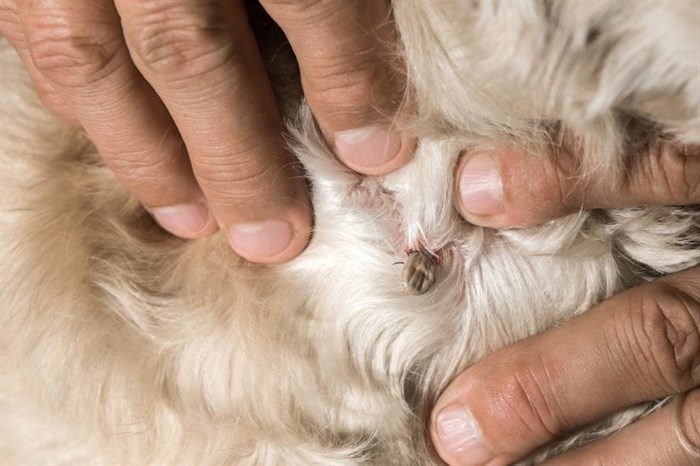
It's tick season.
Image Credit: BCSPCA
April 11, 2021 - 1:21 PM
With warmer weather comes the time for hiking with pets but BC SPCA senior manager of animal health, Dr. Emilia Gordon, says some pesky parasites, like ticks and fleas, are also in bloom.
“While not all ticks carry lyme disease, if you think your dog has picked up a tick, contacting your vet is highly recommended as there are also other tick-borne diseases,” Gordon said in an SPCA press release.
“The tick should be removed as soon as possible to reduce the chance of disease transmission. Ask your vet about safe methods and any necessary follow-up.”
Ticks are external parasites that feed off the blood of unlucky hosts, including humans, dogs and cats. Tick bites and tickborne diseases, such as Lyme disease, can be hard to detect; signs of tickborne disease may not appear for seven to 21 days or longer after a tick bite, notes Gordon.
Old-school methods like burning the tick out or attempting to suffocate it with oil should never be used.
“Watch your pet closely for changes in behaviour or appetite or for any unusual illness such as fever, lameness, lethargy, bruising or bleeding if you suspect he’s been bitten by a tick,” Gordon said. “It’s also important to properly remove the tick, or to have it properly removed, to help prevent any disease or infection.”
Steps pet guardians the SPCA said can take include:
-
Check your pets daily for ticks, especially if they spend time outdoors
-
If you find a tick on your pet, remove it or have it removed by your veterinarian right away
-
Ask your vet to conduct a tick check at each exam
-
Talk to your vet about tickborne diseases in your area
-
Reduce tick habitat in your yard
Talk with your veterinarian about using tick preventatives on your pet – there are a number of safe medications and prevention is the best medicine
Other parasites, such as fleas, can also be problematic for pets and humans if not properly addressed.
To contact a reporter for this story, email Kathy Michaels or call 250-718-0428 or email the editor. You can also submit photos, videos or news tips to the newsroom and be entered to win a monthly prize draw.
We welcome your comments and opinions on our stories but play nice. We won't censor or delete comments unless they contain off-topic statements or links, unnecessary vulgarity, false facts, spam or obviously fake profiles. If you have any concerns about what you see in comments, email the editor in the link above.
News from © iNFOnews, 2021